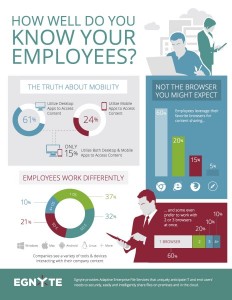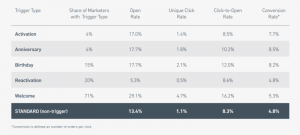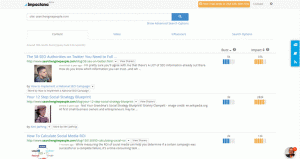— March 5, 2018
Let’s say you’re a small business that just opened up shop recently. More than likely, your budget is a little tight. You might also have a myriad of jobs that need to be done and a very limited amount of manpower (or womanpower).
Given how accessible the pool of freelancers is these days, it seems like a no-brainer to outsource certain tasks. After all, you don’t have to pay them a salary, health benefits, or other costs that an in-house employee would require. You don’t even need to set up a workspace for them! Seems obvious, right?
What’s more, the freelancing and flexible working have been growing exponentially as of late, making it incredibly easy to find talent. The “Gig Economy” has grown by 30% in the last couple years, and freelancers are expected make up the majority of the US workforce in less than twenty! Freelancers can be hired for everything from administrative duties, to graphic design, to data science. Needless to say, as great as this all sounds, keep in mind, every upside has a downside.
Since there are a lot many great things that the Gig Economy has to offer for small businesses and startups that need a little extra help, let’s start with those.
Significantly Less Overhead
First things first, freelancing and outsourcing is much more likely to fit into a small business’s budget than hiring a full-time, or even part-time worker. Many freelancers can be hired on a project by project basis, while others may be hired for specific amounts of time.
While the cost can vary greatly based on the level of expertise and the amount of work each freelancer puts forth, chances are, it will still cost you less in the long run since they are only paid for the work they do, rather than the hours they spend in the office. Freelancers also require less overhead in terms of recruiting, training, sick days, and office space requirements.
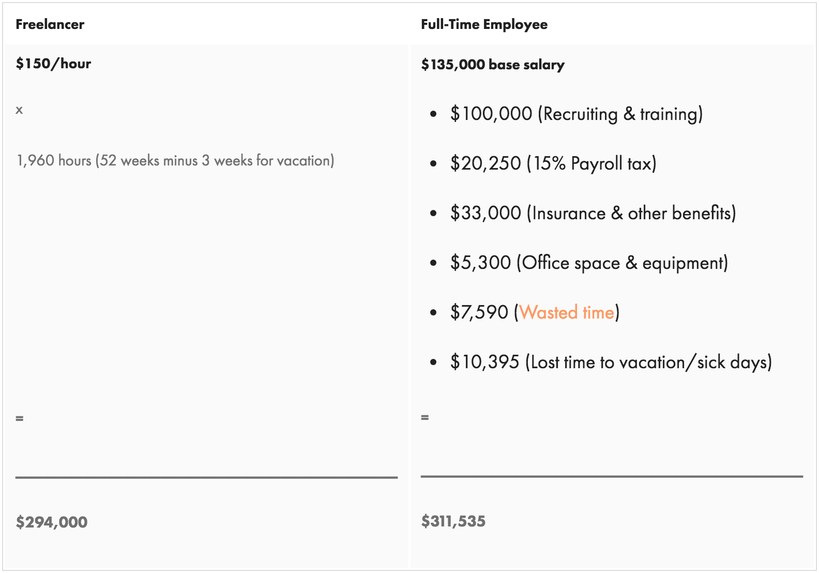
To make things easier and control costs better, there are also a number of solutions that take care of job tracking and invoicing freelancers for you. Tools like Tradify make it simple to monitor jobs all the way from quote to final payment. You can also prioritize tasks and schedule freelancers working on multiple projects within a unified, centralized platform.
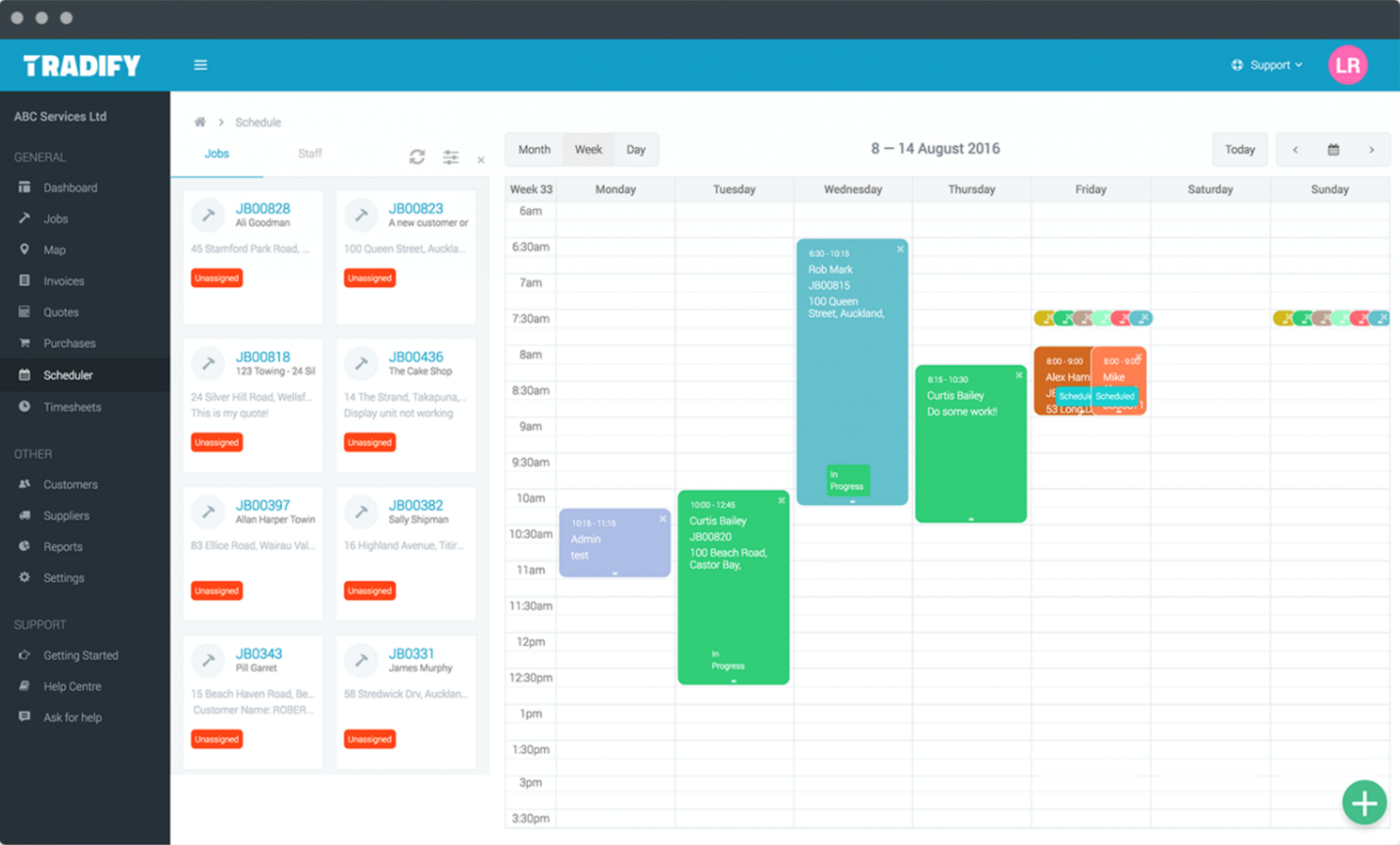
More Diverse Talent Pool
By outsourcing tasks and assignments to various freelancers, your business can tap into diverse talent from multiple experts beyond the core team. Every person will have a different approach to certain tasks which can have an effect on the outcome. By hiring freelancers from all over the globe with varying skill levels and experiences, your small business can gain from multiple points of view and approaches.
This type of diversity can play a huge role in marketing efforts, especially. Freelancers are a highly diverse group of people in terms of ages and backgrounds, which means that each individual understands and connects with various audiences. By collaborating with different talent, your marketing strategies can successfully attract wider audiences and use a number of foreign techniques that gain valuable traction.
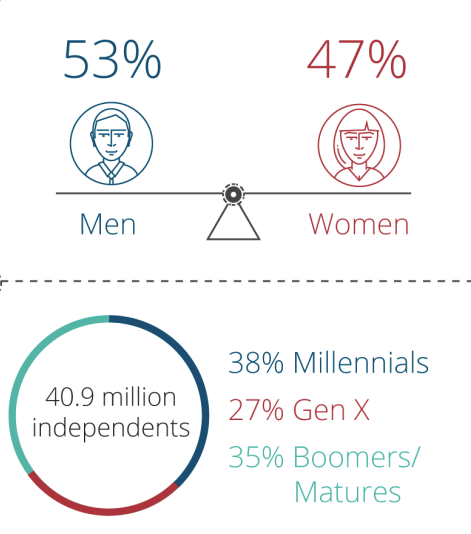
More Flexibility
Of course, one of the main reasons that people choose the Gig Economy lifestyle is because of the freedom and flexibility it offers. This kind of flexibility certainly helps growing small businesses, too. It allows SMBs to hire only when necessary for specific jobs and projects.
This can also provide small businesses with flexibility in terms of quality and length of specific projects. For instance, if there is an important task like a website re-haul, content design, or major accounting project, then a more experienced freelancer can be hired for the task. On the other hand, if it is a quick project that needs completion ASAP, less experienced talent will do.
Less Risk
Another huge advantage that the Gig Economy offers is less upfront risk for bad hiring decisions. Most freelancing sites provide resumes and skill assessments for their users, along with recommendations and reviews from previous employers or contractors.
With an upfront view of each freelancer’s specialties, job history, and project portfolio, small businesses can feel more confident when picking a contract hire to work with. Additionally, if it doesn’t work out, the cost of freelancer turnover is very minimal compared to employee turnover.

Now that we’ve looked at the major positives, we definitely need to visit a few negatives that small businesses and startups must be wary of before going ahead with outsourced help. Let’s look at those now.
Lack of a Solid Company Culture
A company’s culture is essential for growth. It establishes how a company is run, what it values, and even the likelihood for success due to the impact it has on the employees. However, hiring remote freelancers that never come in direct contact with the business has little impact on the culture.
While a lack of definable culture may be fine for a brand new startup with just a handful of employees, it is not always sustainable for the long run. Businesses are made up of people, and people create culture. Essentially, a lack of culture is on par with a negative culture, a factor that could even deter future employees from joining.

Dearth of Stable Workers
Again, back to the flexibility factor here. Since freelancers are not usually tied down to a specific company and are not required to give a two-week notice like a traditional employee, they can leave once a project is completed and never come back. You can have the most skilled freelancer on the market, however, it’s very difficult to keep them around for the long haul.
The silver lining is that you get a great impression for the value a freelancer can bring to your business. If they are worth keeping around, you can potentially convert the freelance gig into full-time jobs.
Less Control
Since freelancers don’t typically work in close quarters with you, you have significantly less control over the details involved with each project. There will almost always be lag time involved with sharing ideas and clearing up questions.
This means your managers need to get very good at giving directions. For example, if you are working with a freelancer located on the other side of the world, they are likely working while you are sleeping, and vice versa. Therefore, if a question comes up, it can take hours to clarify. Therefore, when you outline the project scope, there can be no gray areas of unknowns whatsoever. Even the smallest snags can result in wasted time and outcomes that totally miss the mark.
Lapses in Communication
Falling in line with last point of having less control, your communication systems need to be airtight. While technology does make us more connected than ever, it can also lead to higher chances of miscommunication. Missing an important email or accidentally deleting a message is easy to do, but it could have detrimental effects on the completion and quality of a project.
With freelancing, there is often little time for error, especially when a strict deadline is in place. For this reason, it’s highly recommended that you adopt a communication software like Trello or Slack (or both!) to keep everyone in the loop. Any hiccups in communication or project management could cause delays, costing both the business and the freelancer time and money.
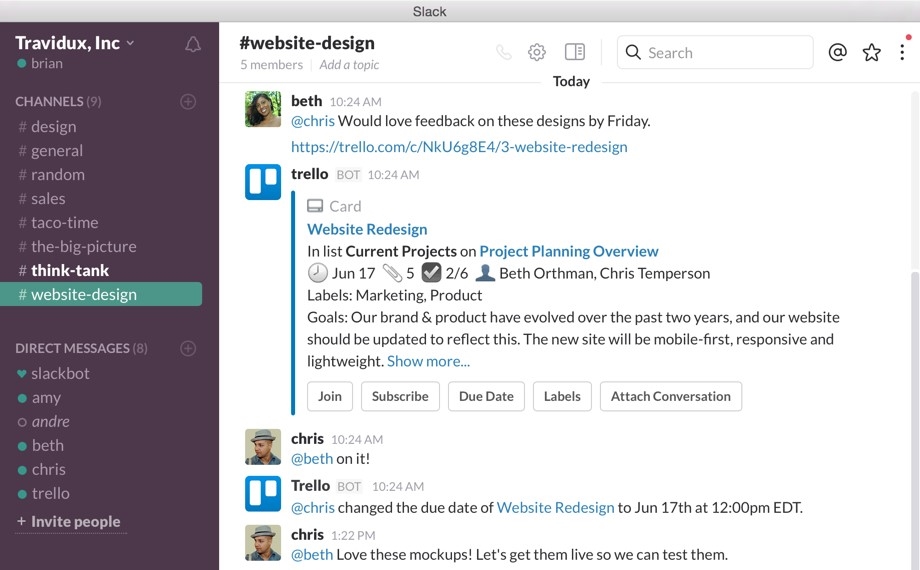
Over to You
All in all, looking into hiring a freelancer for various tasks and assignments is a great opportunity for small businesses who are not quite ready to hire full-time just yet. There are some great benefits in terms of lowered costs and increased flexibility, but it is far from a perfect solution. The gig economy is certainly not a flawless model and there are many shortcomings that businesses should be prepared to deal with before diving in.
Whichever way you decide to go, always be sure to do the research and weigh out the pros and cons for the best results. Good luck!
Business & Finance Articles on Business 2 Community
(84)

